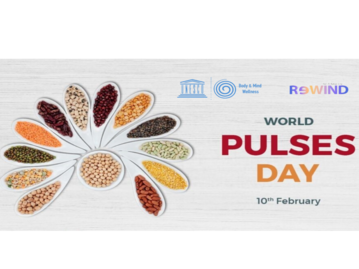
The Origin
The origins of World Pulses Day trace back to 2016 when the United Nations General Assembly recognized the significance of pulses in sustainable development. This initiative began with the Food and Agriculture Organization (FAO) of the United Nations during the International Year of Pulses in 2016, which showcased their role in addressing global challenges. Following this success, February 10 was officially declared as World Pulses Day in 2019. This annual celebration highlights the importance of pulses in ensuring food security, fostering environmental sustainability, and improving nutrition across the globe.
Who came up with the idea?
The FAO initiated the concept of World Pulses Day as part of a broader campaign to promote the value of pulses. By emphasizing their benefits to agriculture, nutrition, and the environment, the FAO sought to create global awareness about the role pulses play in sustainable food systems. The UN General Assembly’s adoption of the resolution in 2019 cemented this day as a global platform for education and action.
Why is it important?
World Pulses Day is critical for raising awareness about the nutritional, environmental, and economic benefits of pulses, such as lentils, chickpeas, beans, and peas. As a rich source of plant-based protein, essential vitamins, and minerals, pulses contribute significantly to combating malnutrition and promoting healthy diets. They also play a vital role in sustainable agriculture by fixing nitrogen in the soil, reducing the need for chemical fertilizers, and minimizing farming’s environmental impact. At a time when climate change and global food insecurity are pressing issues, pulses present an effective and sustainable solution.
UNESCO BMW’s Involvement:
UNESCO BMW aligns its mission with the goals of World Pulses Day by advocating for sustainability, food security, and cultural heritage. Through educational initiatives, social campaigns, and partnerships, UNESCO BMW emphasizes the role of pulses in traditional and modern diets, highlighting their cultural significance in various societies. By promoting awareness about the benefits of pulses, UNESCO BMW contributes to global efforts to preserve their historical value while advancing sustainability.
UNESCO BMW’s Vision:
UNESCO BMW envisions a future where pulses are recognized as a foundation of sustainable development. This includes fostering research and innovation to optimize their production and use while protecting biodiversity. The organization aims to encourage global collaboration to tackle food security challenges and support communities dependent on pulses for their livelihoods. Through education, advocacy, and cultural preservation, UNESCO BMW seeks to inspire a world where pulses are celebrated not only for their nutritional and agricultural contributions but also for their ability to shape a more sustainable and equitable food system.
By:- Hanin Razk
Sources:
- https://www.fao.org/world-pulses-day/en
- https://www.un.org/en/observances/world-pulses-day
- https://sdg.iisd.org/events/world-pulses-day-2024/
- https://mssrfcabc.res.in/?page_id=14391
- https://scalingupnutrition.org/events/international-day/world-pulses-day-2024
- https://unescobmw.org/
- https://unescobmw.org/about-us/our-mission/